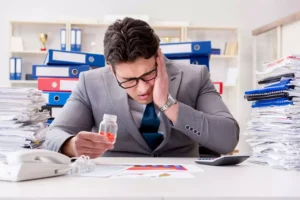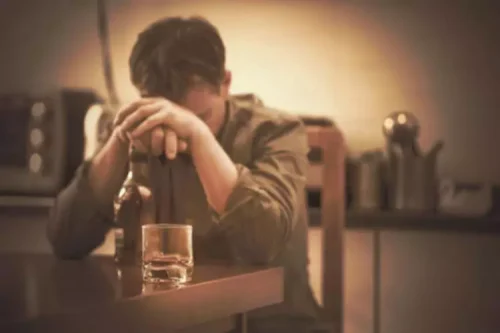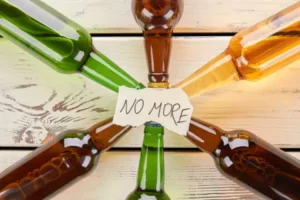
In another study, thirsty adults perceived a cold carbonated beverage to be more thirst-quenching than water. However, the amount you drink may make a difference, and some beverages may affect the perception of thirst differently. However, research is mixed on the hydrating effects of certain beverages. While all liquids can help maintain hydration status, some may be more beneficial than others. But over time, too much alcohol can set off diabetes and malnutrition, and diseases of the central nervous system and the liver.

Eat before drinking
- Being dehydrated can lead to some serious consequences, which we’ll investigate further.
- Sipping on one whisky all evening will likely mean you ingest less alcohol overall than three or four standard glasses of wine.
- Alcohol can disrupt electrolyte balance, which can contribute to dehydration.
- Each shot of alcohol that you drink forces your kidneys to generate an extra 120 millilitres of urine on top of the normal 60–80 millilitres per hour.
- A 2020 study notes that dehydration may increase glucagon, a hormone used to maintain glucose or sugar levels in the blood.
- So, it’s important to watch out for signs that you’re not drinking enough water.
However, when your body works to eliminate alcohol from your system through these processes, other crucial substances, like water and essential nutrients, are removed, too. You can experience water and nutrient depletion, leading to unwanted symptoms such as dehydration. You may start to see symptoms of dehydration improve in five to 10 minutes. Learning to listen to your body, recognizing the signs of dehydration, and drinking plenty of water during the day can also ensure you’re meeting your fluid needs. Interestingly, a review of 49 studies even does alcohol dehydrate you reported that caffeinated energy drinks, wine, and spirits can all significantly increase urine production (14).
- You can experience water and nutrient depletion, leading to unwanted symptoms such as dehydration.
- Research from 2017 found that people with diabetes who had 3 days of low water intake had an impaired blood glucose response.
- You can usually manage mild cases of dehydration by drinking more fluids that don’t contain alcohol.
- Euphoria, relaxation, and other physical and mental changes are the result of alcohol’s impact on your central nervous system.
- Alcohol dehydration cures abound, but before you trust old wives’ tales or the hair of the dog, read on.
- Consuming a meal containing plenty of healthy fats before drinking buffers alcohol absorption and allows more time to process and detoxify alcohol, which helps prevent dehydration.
Alcohol Dehydration Symptoms

So don’t mix your alcohol with these or drink them between alcoholic beverages. A spiked cider for the holidays probably won’t do too much to dehydrate you — but it could be a completely different story with hard liquor like whiskey, brandy, and vodka. Make sure you’re aware of the alcohol content in your drinks. Some can be tricky — like high-quality wines with a higher alcohol by volume than low-quality wines. In high-altitude areas, people tend to get drunk faster, too. There’s less air pressure, so alcohol enters your bloodstream even more rapidly.
- Although the kidneys remove waste products, most of the water loss is due to the effect of vasopressin.
- With impaired antidiuretic hormone, you’ll notice more trips to the bathroom and less concentrated urine.
- Interestingly, studies have shown that people over 50 overcome the suppression of ADH from alcohol more quickly than their younger counterparts.
- Studies have shown that being dehydrated by just 2% can lead to impaired performance on tasks that require attention and psychomotor and short-term memory skills.
- If you’ve been drinking and are experiencing alcohol dehydration symptoms, you need to restore your body’s fluid balance.
- The water we drink today is either tap water (full of chlorine and other chemicals) or filtered water (completely stripped of mineral content).
Alcohol and Dehydration
- If you’re consuming more alcohol during the holiday season, you’re not alone.
- According to the CDC, drinking alcohol in moderation is safe for most people.
- When you’re feeling a hangover, it’s important to explore the root cause.
- Dehydration is when the body does not have sufficient amounts of fluid to function effectively.
If you take diuretics, antacids, laxatives and blood pressure medication, they may be designed to flush water and electrolytes out of your body. So, it’s important to watch out for signs that you’re not drinking enough water. This can be from not drinking enough water or when you lose water quickly from sweating, vomiting or diarrhea and don’t match the losses. When you’re dehydrated, you have a lack of water in your body and it doesn’t have enough water to perform its necessary functions. Most guidelines recommend aiming for a total fluid intake of about 11.5 cups (2.7 L) for women and 15.5 cups (3.7 L) for men, which includes water from both foods and beverages (16). You can also pair the listed drinks with plenty of water throughout the day to help you stay hydrated.
What To Do if You’re Dehydrated From Alcohol
The easiest way to do this is to stop dehydration before it starts — and, no, that doesn’t mean you have to give up happy hour altogether. “The higher the alcohol content a drink has (or is absorbed in your body), the greater the diuretic and dehydration effect.” Between your Thursday night wine and your Saturday night cocktail, you have a fairly good sense of what kind of hangover you’re in for on Friday and Sunday mornings. But beyond the type of alcohol you’re imbibing, you might not realize how much dehydration enters into the hangover equation.
Avoid alcohol on hot days
Receive encouragement from people worldwide who know exactly what you’re going through! You’ll also have the opportunity to connect with our licensed Reframe coaches for more personalized guidance. The Reframe app equips you with the knowledge and skills you need to not only survive drinking less, but to thrive while you navigate the journey. Our daily research-backed readings teach you the neuroscience of alcohol, and our in-app Toolkit provides the resources and activities you need to navigate each challenge. The industrialization of farming and food sourcing has brought a lot of benefits to our world.
Coffee, tea, and soda contain caffeine, a central nervous system stimulant that acts as a natural diuretic to increase urine production (1). It reduces how much ADH you make, so it increases how much urine you produce. Each shot of alcohol that you drink forces your kidneys to generate an extra 120 millilitres of urine on top of the normal 60–80 millilitres per hour. But you still have just as many salts floating in this reduced volume of water. As for your muscles, when drinking too much alcohol for an extended period of time, you can experience muscle stiffness and cramping… or even lose muscle mass.

Thirst
However, research is mixed on whether these beverages increase urine output significantly. Interestingly, dark liquor also seems to be more dehydrating than light/clear liquors. That’s because they contain high levels of tannins and acetaldehyde. So, https://ecosoberhouse.com/article/how-to-approach-a-person-who-prefers-avoiding-conflicts/ when drinking liquors like whiskey and brandy, it’s especially important to consider how many drinks you’ve consumed versus glasses of water. Alcohol is a diuretic, meaning that your urine output increases.
Alcohol’s Components Are Flushed From the Body
Reducing your alcohol consumption overhaul will help you avoid some of the bigger health risks from long-term dehydration and drinking. But if you insist on having a drink or two, there are things you can do to mitigate the dehydrating effects of alcohol. Remember that list of things that makes alcohol-related dehydration worse? Drinking 2–3 cups of coffee a day may be an acceptable practice to maintain moderate coffee consumption.